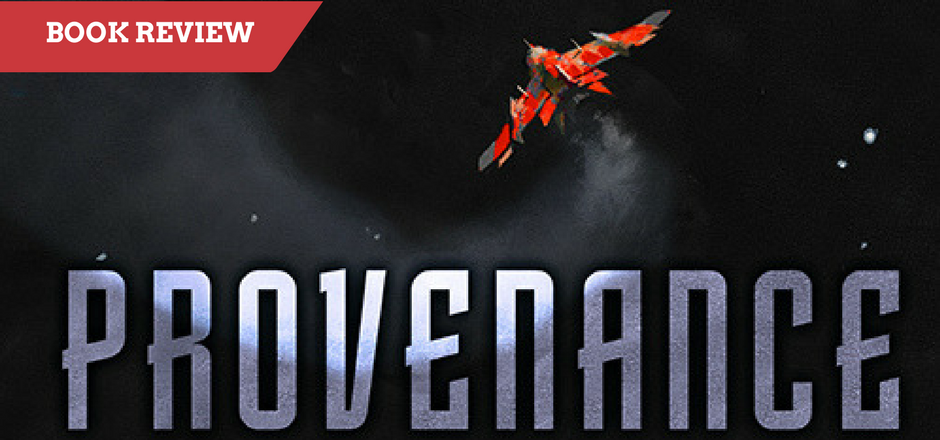In an attempt to impress her mother, Ingray Aughskold does something potentially very stupid: she pays to have a prisoner removed from the planet Compassionate Removal, where Hwae sends its criminals who are considered beyond reform. But removing the person believed to be Pahlad Budrakim sets off a chain of political events with the potential to change everything the Hwaeans have ever known.
 Provenance marks a return to the universe of Ann Leckie’s Imperial Radch trilogy, which began in 2013 with the award-winning Ancillary Justice. Provenance is similarly centered around a plot of intergalactic political intrigue, following a young woman who’s frankly too inexperienced to navigate the situation she’s put herself in.
Provenance marks a return to the universe of Ann Leckie’s Imperial Radch trilogy, which began in 2013 with the award-winning Ancillary Justice. Provenance is similarly centered around a plot of intergalactic political intrigue, following a young woman who’s frankly too inexperienced to navigate the situation she’s put herself in.
While the stakes are awfully high throughout the story, Ingray’s personal journey is what makes Provenance an enthralling read, inexperience and all. While I loved the Imperial Radch trilogy, Ingray is an incredibly different sort of protagonist than Breq: from the very beginning, the reader knows that Ingray has her own prejudices and preconceived notions, though she clearly suffers from the structural implications in her own society.
As in the Imperial Radch trilogy, privilege is a key aspect of the political maneuvering in Provenance. Hwaean society has an entirely different structure and different intricacies than the Radchaai culture from the Imperial Radch trilogy, and that allows for a different type of exploration of how privileges are layered.
Ingray, for example, has fewer privileges than some of those in her social class, as she was adopted from a “public crèche” where children whose parents can’t or don’t want to care from them are left; yet she retains other types of privilege due to her social class and the accompanying wealth. In a particularly uncomfortable scene, Deputy Chief Veret tells Ingray she’s never had to deal with people telling her she’s not really Hwaean, and her kneejerk defensive reaction is one many will recognize from seeing it in others — or, even more uncomfortably, seeing it in themselves.
Privilege permeates all aspects of the highly hierarchal Hwaean society, which is fleshed out and fascinating. The Hwaean habit of obsessing over “vestiges,” typically different forms of ephemera linked to events or people, is particularly fascinating, and its eventual importance to the plot made me even more fascinated by its inclusion. Because at its core, Provenance asks an important question: is the symbol as important — or possibly even more important — than what it stands for?
Hwae’s most important document, The Rejection of Further Obligations to Tyr, sounds remarkably like the U.S. Declaration of Independence; the Rejection is even housed in a planetary museum under high security, and it serves as a symbol of Hwaean independence. As Ingray’s adventure develops, she starts to question her most fundamental knowledge about the Rejection and everything she knows about Hwae.
Leckie’s work has always presented the lasting effects of imperialism in a way that’s thought-provoking and potentially uncomfortable for those who haven’t had to face that openly in the past. While Provenance has much less action than her previous series, it’s more engaging as a mystery-thriller, and its examination of how privilege plays with politics makes it a relevant read for today.
5 out of 5 stars
Provenance is available at your local independent retailer on September 26, 2017.
This review contains affiliate links. While Girls in Capes does make revenue from purchases made at affiliate links, reviews are not paid, and all reviews contain the staff writers’ honest opinions of the work.






